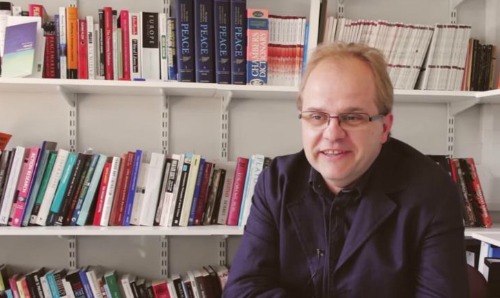Revolutionising the UK’s response to international disasters
A generation of Haitians may needlessly have lost limbs thanks to a lack of specialist medical training in those who responded to the 2010 Haiti earthquake. University of Manchester research has since ensured future overseas disasters can benefit from a more effective medical response from the UK.
Global problem: international inequalities in medical standards
Research beacon breakthroughs
Find out how world-class academic research is commercialised by scientists, engineers, medical professionals, business leaders and policymakers at Manchester.
Humanitarian responses to international disasters are invariably well-intentioned but can have unforeseen negative consequences. One doctor attending to the 2010 Haiti earthquake victims estimated that the vast majority of those coming in with crushing injuries underwent amputations, partly as a result of infections, many of which it is now believed could have been avoided.
Professor Bertrand Taithe, a historian of humanitarian aid who is based at our Humanitarian and Conflict Response Institute, was directly involved with Handicap International and the UK evaluation of the Haiti relief effort in 2010, funded by the Department for International Development (DFID).
His qualitative assessment brought into sharp focus the Haitian perspectives on the standards of surgical interventions and poor levels of documentation, coordination and resource allocation in the international effort. These were issues that Professor Taithe had seen surface repeatedly in his prior research on the history of humanitarian responses to disasters and wars.
Manchester solution: supporting high quality medical interventions
Our Humanitarian and Conflict Response Institute is ideally placed to bring together the social sciences and medical sciences, in a space where researchers and NGOs can discuss relevant concerns and issues, to understand where research questions can impact on practice.
"This Manchester breakthrough for addressing global inequalities in medical standards was about Manchester researchers working together for the greatest good."
Bertrand Taithe / Professor in Cultural History
Professor Taithe says: “My research on Haiti gave crucial evidence of the urgent need to change humanitarian practices. It allowed me to feed through the work of Professor Tony Redmond, with whom I worked very closely, into relevant debates at the World Health Organisation (WHO) on foreign medical teams and the minimum data needed for health workforce registration.
“Together, our research brought about the breakthrough for the creation of the UK International Emergency Trauma Register (UKIETR): a body to help UK health professionals deliver a coordinated medical response during rapid onset of overseas disasters.
He added: “For me, this Manchester breakthrough for addressing global inequalities in medical standards was about Manchester researchers working together for the greatest good.”

The UKIETR has now expanded into a larger register that encompasses trauma, medical and public health professionals, and acts as an interface between volunteering, training and being effectively deployed. It lists specialists, trains them for work in resource-poor environments and austere working conditions, trains them in specific responses and then makes them available to NGOs or state responses.
The University of Manchester’s Professor Tony Redmond established these registers, which are hosted within UK-Med – an NGO founded by Professor Redmond in 1995 which is located at the University.
Life-changing impacts
The creation of a UK International Emergency Trauma Register has provided:
- a highly effective way for the UK to share its NHS expertise with the world and deploy trained and fully prepared staff to complex emergencies;
- a pioneering instance of a new approach to better structured, evidence-based, thoughtful and respectful engagement in the problems and crises of others;
- a route for UK medical professionals to develop a lifelong engagement with volunteering that responds to real needs and is supported by training and education.
Find out more
Read the research papers:
- 'Disasters and a register for foreign medical teams', The Lancet, Vol 377, Issue 9771, 2011
- 'A qualitative and quantitative study of the surgical and rehabilitation response to the earthquake in Haiti, January 2010', Prehospital and Disaster Medicine, Vol 26, Issue 6, 2011
Meet the researchers:
- Professor Bertrand Taithe, Professor in Cultural History
- Professor Tony Redmond, Professor of International Emergency Medicine
